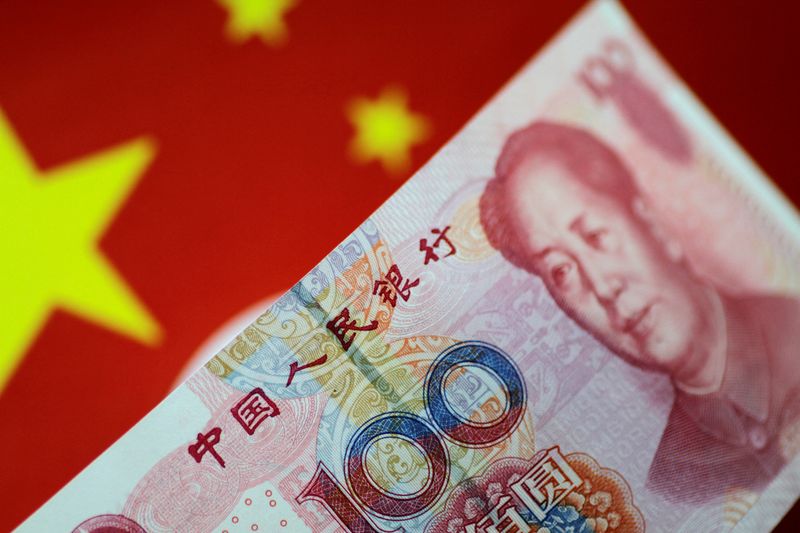SHANGHAI (Reuters) -Avoiding excess yuan appreciation should be one of China's priorities in managing market expectations and regulations, a former senior official at the country's foreign exchange regulator has said.
A challenge for exchange rate fluctuations or flexibility is that the currency could overshoot, deviating from its economic fundamentals, said Guan Tao, global chief economist at BOC International and the former head of the Balance of Payments department of the State Administration of Foreign Exchange (SAFE), writing in a social media post over the weekend.
"Market supply and demand were the dominant force driving the yuan rally this year, while orderly expanding domestic FX purchases and outbound investment channels should be the key to stabilising the currency," he said.
The Chinese yuan has been one of the best-performing Asian currencies this year, rising about 3% against a strengthening U.S. dollar. In trade-weighted terms, the yuan is at its strongest since late 2015.
"The soaring multilateral yuan exchange rate has prompted concerns over competitiveness," Guan said.
The People's Bank of China (PBOC) has announced a hike in the foreign exchange reserve requirement ratio (RRR) by 200 basis points (bps) to 9% from 7% from Dec. 15, thereby requiring financial institutions to hold an additional $20 billion in foreign exchange in reserve at the central bank.
The second hike in the FX reserve requirement ratio this year has convinced some market participants that authorities are becoming increasingly uncomfortable with the yuan's rapid appreciation.
"The PBOC's decision to hike FX deposit RRR has already sent an obvious signal that it doesn't want too rapid a yuan appreciation," said Lu Ting, chief China economist at Nomura.
"The yuan is overvalued, and I think the exceptionally strong yuan is not good for exports."
Lu said the huge capital inflows from surging trade and current account surpluses were a challenge for the yuan and the central bank's reluctance to purchase foreign currency from commercial banks had driven the yuan even higher.
Those surpluses and investment flows had pushed foreign cash deposits at China's banks to $1.02 trillion by the end of November.
Nomura expects the authorities to roll out measures to stabilise exports while also absorbing dollar deposits from the banks so as to relieve the pressure on the yuan and also supplement cash balances in the financial system.
